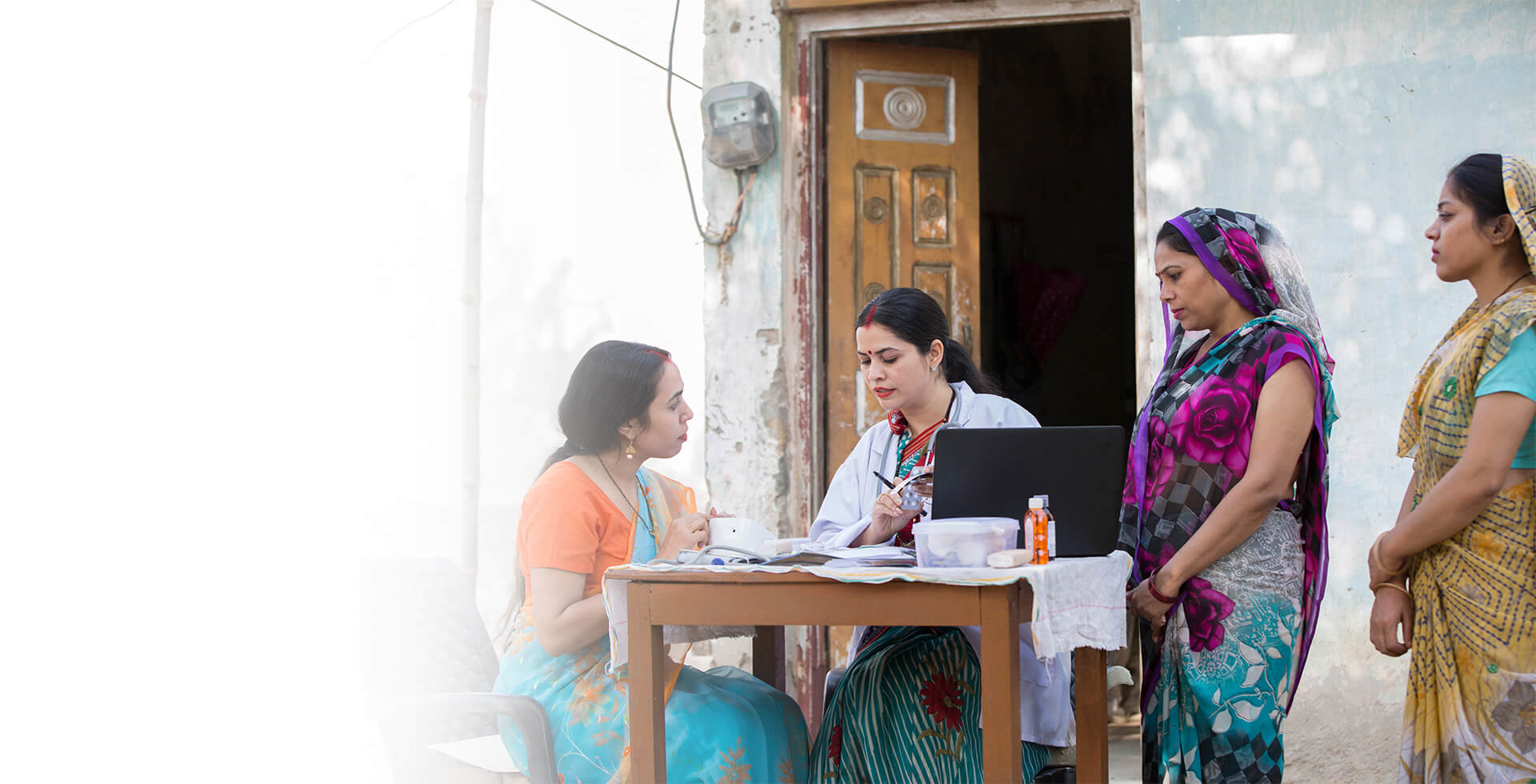Sustainable Sourcing and Preferential Procurement Policy
Purpose
Dabur suppliers deliver raw materials, ingredients, and packaging materials for the finished goods production. In this process, suppliers also contribute significantly to sustainability in terms of Environment, Social & Governance (ESG). Dabur aims to incorporate and integrate sustainability in the activities pursued by the supply chain partners. Through this Sustainable Sourcing and Preferential Procurement Policy, Dabur would actively encourage, channelise and guide the supply chain partners to operate to an expected level of sustainability performance and delineate a set of criteria for Preferential Procurement. This policy is a step towards the cause that seeks to encourage and promote manufacturing, production, trading, aggregation of goods and services with a view to enhance inclusive growth and development. We support and boost preferential procurement initiatives and projects for the purpose of improving procurement from marginalized & vulnerable communities. This policy lays down a set of guiding principles that would guide Dabur’s decisions to engage with the supply chain.
Sustainable Sourcing Policy
Scope
Sustainable Sourcing Policy applies to all suppliers falling under different categories of different scales and geographies. This policy shall apply to all Suppliers, including their employees, contract workers, sub-contractors, and their service providers, who engage in business relationships with Dabur or on behalf of Dabur.
Core Principles
- Greenhouse Gas (GHG) Emissions & Climate Change – To mitigate risks posed by climate change and carbon footprint, Dabur would encourage all suppliers to estimate GHG emissions from their array of activities or operations and use a programmatic approach to reduce their carbon footprints.
- Pollution & Circularity – Dabur expects suppliers to run their business in a manner which should prevent and control adverse impacts to the physical environment (air, water, land). Dabur also encourage the suppliers to adopt resource-use efficiency, Sustainable natural resource management, minimisation of food loss & waste, encourage adoption of water stewardship initiatives, support minimization of hazardous and non-hazardous waste by applying circularity, 3R (Reduce, Reuse, Recycle), Life Cycle Analysis (LCA), Extended Producer Responsibility (EPR) principles.
- Biodiversity & Natural Resource Management – Dabur encourage its suppliers to ensure legal compliance and due certifications to align with biodiversity related laws & regulations. Associated suppliers should conduct periodic risk assessments of all raw materials including medicinal plant species / packaging material sources and take appropriate sustainable sourcing procedures/ mitigation actions. Dabur and its suppliers should continuously raise awareness for the supply chain partners to preventing and mitigating the risk of deforestation on account of usage of forest-risk commodities like packaging materials, palm & soyabean etc.
- Inclusivity, Human Rights & Labour Working Conditions – Dabur encourage its suppliers to promote inclusivity, gender diversity and parity amongst their work force, while providing a high priority to protecting their health and safety at workplaces. In line with Dabur’s commitment to observe national regulatory requirements for labour and Rights at work, suppliers should comply with legal requirements related to working hours, wages, and benefits to workers, as may be applicable to the jurisdiction where they operate and must ensure prevention of child labour and forced labour, any harassment or discrimination amongst workers.
- Product & Process related Certifications – Aligning with ESG commitments, Dabur prefers to source from suppliers who have obtained relevant product & process-related certifications and ecolabels committed to reducing water, waste, and emissions footprints, and utilizing energy- and water-efficient technologies. Furthermore, we value suppliers who engage in ethical labour practices, promote diversity, inclusion, and ensure overall development and well-being of people within and beyond the organisation. In addition, preference would be provided to suppliers who conform to national as well as international standards and management systems (e.g. ISO 9001, 14001, 45001, SA 8000) & food safety standards, as may be applicable.
- Opportunities for Weaker Sections/Vulnerable Groups – In line with Dabur’s commitment to promote social equity and wellbeing, preference shall be to suppliers who are vulnerable or otherwise marginalised. This includes farmer producer organisations/cooperatives, self-help groups, suppliers who promote employment of marginal sections of society, women, or people with disabilities.
General Principles and Governance
- Screening and Selection Criteria- Selection of suppliers include the acceptance of Sustainable Sourcing Code of Conduct (SSCOC), Sustainable Sourcing and Preferential Procurement Policy (SSPPP), fulfilling the material/ category ESG requirements and laws of land in terms of ESG. Dabur prefer to select suppliers based on the lower environmental/social impact of their products/service, more specifically—FSC, RSPO, or those with a certified lower water or carbon footprint. The product-related requirements in alignment with EPR compliance.
- Compliance to ESG Regulations – Dabur suppliers should comply with applicable country and local level regulations (notified by government) related to environmental, health, safety, human resource. Suppliers should submit the requisite compliance like GST, FSSAI, MSME, etc. In addition, on-site audits should be conducted by the suppliers.
- Anti-Bribery, Corruption & Integrity – Dabur expect its suppliers to adhere to highest levels of integrity in terms of bribery and corruption, provide scope for free competition and not engage in anti-competitive practices. In addition, all partners are expected to follow national norms on trade practice and adhere to national sanctions, where applicable.
- ESG Data Consolidation & Traceability - Dabur encourage suppliers to consolidate and share ESG related data, as per mutually agreed arrangement. Dabur would also work closely with suppliers for a traceable supply chain that would allow for verification and validation of performance at all levels of the supply chain.
- Capacity Building & Training – Dabur’s commitment for periodic assessment and development/capacity programs for significant/tier 1 suppliers to enhance the ESG performance and address material supply chain risk assessment. On similar scope the Dabur supplier should promote awareness & capacity building programmes for their supply chain.
- Transparency & Reporting – Dabur expect its suppliers to maintain transparency, demonstrating a positive intent to share and disclose relevant information and reports related to the ESG performance of the site and operations.
- Implementation of the policy- We expect our suppliers to set in place internal policies, governance structures, systems, processes and take any other relevant measures to ensure adherence with this policy. Suppliers are expected to set goals and undertake measures for each of the various principles defined in this policy.
- Assessment & Audit – Further to the initial desktop assessment and the ESG scorecard, significant vendors and the vendors who require corrective and preventive actions (CAPA) shall be audited and due reports shared with the suppliers. Dabur suppliers should promote the similar system in their scope of supply chain.
- Significant and Critical Supplier Selection- Dabur Significant suppliers are considered in the screening process basis business relevance (above 65% of the category volume). Critical Suppliers are screened basis the volume, Supplier base, Seasonal Commodity, region specific, Specialised material, critical component, Technicality, Substitute, and environmental aspect like endangered species etc.
- ESG Supplier incentive & Non-compliance regulations - Suppliers with good score card will have competitive advantage in the business. Also, suppliers who continuously improve their ESG scorecard and improve their performance shall be incentivised in allocation of business. In addition, ESG scorecard will be considered in the overall supplier ranking. Vendors who fail to improve on their ESG score and detailed corrective actions (CAPA) will have impact on the business allocation. Consistent non-compliance impacts the potential discontinuation of partnerships.
Preferential Procurement Policy
Scope
Dabur India Limited values and encourages diversity and inclusion of the people with whom we work. Preferential Procurement Policy defines procurement from vulnerable and Marginalized group/individuals. Marginal or Vulnerable /individual refers to one who is unable to realize their rights or enjoy opportunities due to adverse physical, mental, social, economic, cultural, political, geographic or health circumstances. These entities play an important role in the growth of the local community and to bring the disadvantaged individuals, areas into the mainstream economy.
With perspective to Dabur India Ltd, we have identified the following as focus areas for framing policy of preferential procurement from these marginalized/vulnerable group/individuals:
- Women and transgender
- Scheduled castes & Scheduled tribes as defined by the Government of India (The Scheduled Traditional Forest Dwellers (Recognition of Forest Rights) Act, 2006)
- Displaced individuals/ group like Sardar Sarovar Dam project or forced displaced within home region or as defined in the Displacement Act in India
- Farmers Co-operatives/Producer Groups registered as per Government norms comprising Small, Marginal farmers, Migrant workers (beekeepers)
- Persons with disabilities (Equal Opportunities Protection of Rights and Full Participation) Act ,1995
- Economic – Underdeveloped regions of India as per the Niti Aayog recommendation /list
- Exclusive geographical areas (Ladakh, High Altitude Area, Northeast Region, Thar Desert, Andaman & Nicobar Island etc.)
- Engage with organizations supporting ecosystem, forest restoration and protection project.
- Encourage sourcing input materials from local & small-scale suppliers to promote sustainability, foster community partnerships and contribute to local economic development.
- Consider sourcing of raw materials from suppliers having sustainable development programs across all layers of supply chain.
- Suppliers having a traceability system with ESG scope will be preferred.
(Reference: National Guidelines for Responsible Business Conduct, available at the following link:
https://www.mca.gov.in/Ministry/pdf/NationalGuildeline_15032019.pdf )
Purpose of this Policy
Objective of the Policy is promotion and development of vulnerable and marginalized individuals and groups by supporting them in supply of material/products and services rendered by them. However, the policy rests upon core principle of competitiveness, adhering to sound procurement practices and execution of supplies in accordance with a system which is fair, equitable, transparent, competitive, and cost effective. Dabur buys lot of food Products, and it is imperative that food safety norms should be adhered to by all the suppliers including marginalized or vulnerable group/individual.
This policy is aimed at setting procurement guidelines for Dabur India Limited and to outline a process to support and document procurement decisions to ensure implementation of our preferential procurement program. In pursuit of this objective, the Company will provide fair and equitable treatment of suppliers involved in procurement with the Company. Therefore, all suppliers shall be treated in a fair manner within the framework of this policy unless business dictates otherwise.
Policy Statement:
Dabur India Limited Preferential Procurement Philosophy and Policy states to:
- Define and implement procurement instruments (Contract, PO, Terms and Conditions like payment etc) aiding marginalized & vulnerable vendors.
Business Allocation- L1=L1, Marginal or Vulnerable group/individual will be preferred
- In case marginal or vulnerable individual/group is not L1, up to 20% of the business could be allocated if the rate matches L1 /L2 rate.
- Preferential Payment Terms for sourcing from Marginalised/vulnerable section.
- Dabur will encourage/ recommend strongly to banks for financial assistance to marginalised and vulnerable group/individual.
- Dabur India Limited encourages its approved/ registered vendors to associate with establishments run by disabled people, women, descents, and exclusive occupation as defined in vulnerable and marginalized individual/community.
- Farmer Producer Organisation/ Self Help Groups (Aggregation) will be encouraged to associate/procure from Marginal / Vulnerable group/individual with 100% Traceability with Payment Proof.
- New Vendor selection preference to enterprises that promote employment of women, people with disabilities, descents and exclusive occupation as defined in vulnerable and marginalized individual/community.
Responsibility, Measurement and Reporting
Dabur India Ltd promote compliance with legislation relating to Preferential Procurement Policy.
- The responsibility for the implementation of this policy rests with the Head CPPD (Central Procurement and Planning Department).
- Measure, track, and report preferential procurement performance scorecard.
- A preferential procurement benefit scale must be applied during the Procurement, contract, and allocation process.
- A database of Enterprises run by vulnerable, Marginalized individual/ community (disabled people, women, ethnicity, exclusive occupation) shall be established and maintained.
- Each existing or new supplier and/or potential supplier will be required to submit proof of falling under the category of vulnerable, Marginalized group/ individual (Like SC/ST certificate, Bee Board Certificate, small farmer block certificate, exclusive geography /location certificate etc.)
- Each existing or new supplier and/or potential supplier will be required to submit proof of employing women and people with disabilities, and it is the responsibility of the supplier to ensure that this information is up to date.
- Procurement Spend in terms of this policy will be measured annually.
- All category heads of the CPPD who engage directly with suppliers are required to abide by this policy.
Board and Senior Management Oversight
Monitoring and reviewing this policy will be done on a periodical basis by Head of operations and / MANCOM of Dabur and Board of Director. The policy is governed by the Procurement Department to ensure alignment with strategic sustainability goals. Due diligence is undertaken at periodical intervals as and when required to identify and promote marginalized and vulnerable groups / individuals in our business and value chain align with the Sustainable Sourcing and Preferential procurement Policy.
Grievance Redressal Mechanism
Dabur would like to extend a workable mechanism for redressal of any grievances from the supply chain partners or any associated stakeholders. Any supply chain member or any other stakeholders can report any grievance, without any fear of reprisal by email to corpcomm@dabur.com or to the Direct Touch Committee, available at https://www.dabur.com/investor/corporate-governance/policies-related-documents. Suppliers may also dial (24×7) hotline number 18001031644 to lodge their grievances. Corporate communications and Direct Touch Committee are not directly connected to procurement department in terms of business allocation. Hence, confidentiality in reporting will be maintained for Dabur's supply chain partners.
| Recommended and approved by: |
| Approving Authority |
Version |
Date of Approval |
Effective Date |
| ESG Committee |
1.0 |
30.7.2024 |
30.7.2024 |
Dabur Policy Administration
Policy Title: Sustainable Sourcing and Preferential Procurement Policy
Policy Description: This policy lays down Dabur’s ESG related commitments for suppliers.









 View PDF
View PDF